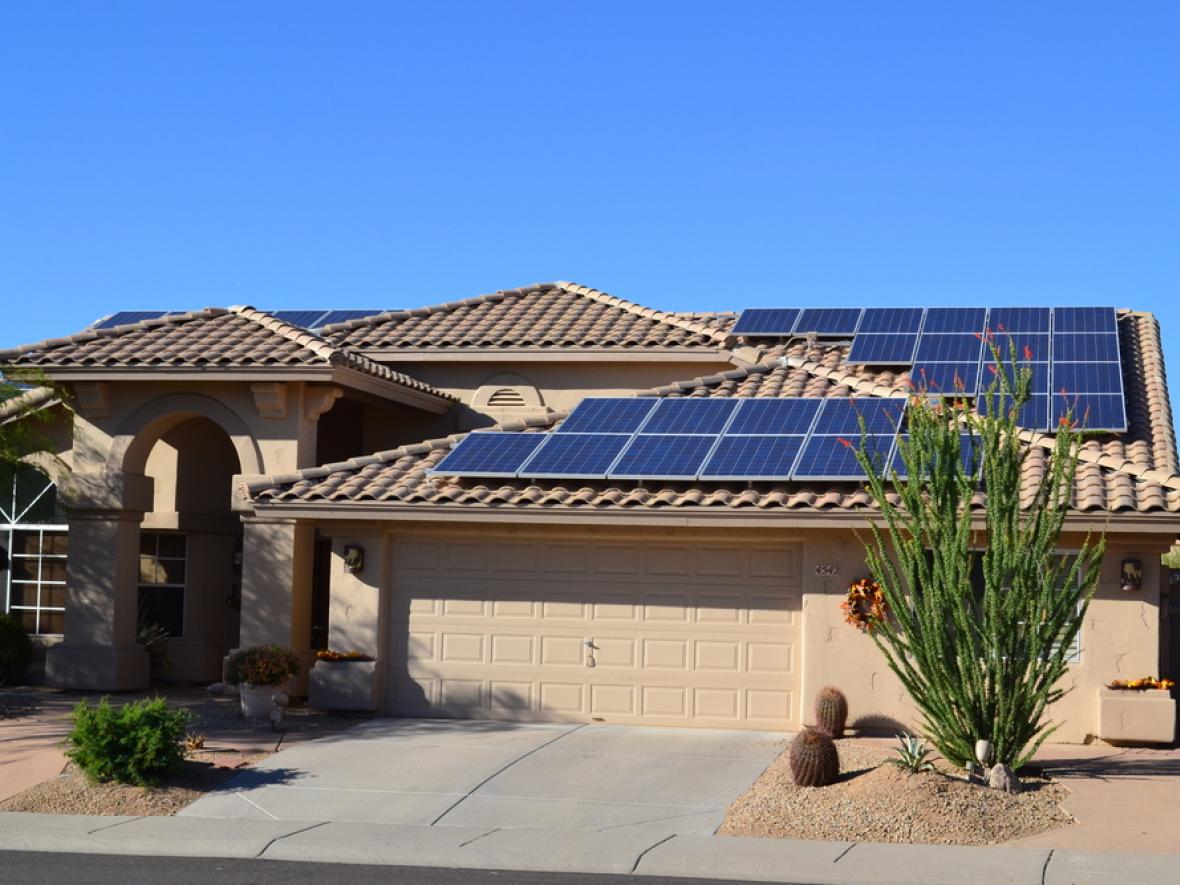
So, you want to make sure you are getting the absolute maximum out of your newly installed solar battery storage system or battery backup system. And who can blame you? You’ve just invested in decades of clean and renewable energy for use in your home by removing yourself from the power grid, and you’ve reduced your environmental impact by lowering your carbon footprint. Just like any other investment, you want to know how to best care for the efficiency of your system so it will last as long as possible and keep all of your lights, devices and appliances on. Fortunately, you’ve come to the right place!
Energy Solution Providers has been a part of the solar movement here in Arizona for decades, back to the early stages of solar electricity. (We even installed some of the first privately owned commercial solar system in Tucson Electric Power territory.) Here are a few tips on how to maximize your solar battery system in your Arizona home.
Know Your Solar Battery System
Were you paying attention during your solar installation as to what equipment was being installed? There are a few things to keep in mind about your system so that you can properly adjust if something seems amiss with your solar electricity.
What size is your system?
Do you know how many kilowatts your system provides? This usually depends on the size of your home and your electricity needs. This will determine how much energy your solar panels and inverter are feeding your batteries.
What kind of batteries are you using?
There are three types of batteries that make up the majority of battery storage systems: saltwater, lithium ion, and lead acid. They all vary in price, life expectancy, and efficiency. Make sure you have a clear understanding of what is known as the “Depth of Discharge” of your batteries, so that you do not cause any unnecessary damage to your system. The depth of discharge (or DoD) refers to how much of a battery’s capacity can be used before it will need recharging. So, if the capacity of your saltwater battery is 5kWs, and it has a DoD of 80%, that means you should not let your battery drop below 1kW of charge before it is fed more solar electricity. Otherwise, you risk reducing the capacity of your battery!
Know your warranty
Make sure you know how long your battery storage system is expected to last. Many manufacturers provide warranties for their batteries that will not last as long as the panels, so you may need to replace your batteries before you replace your solar panels. Battery warranties usually cover a period of time or cycles, as well as a percentage of efficiency (similar to a 36,000 mile/3-year vehicle warranty). So, if your battery storage system is covered for 10 years or 5,000 cycles, at 80% efficiency, that means your batteries shouldn’t lose more than 20% of their efficiency in that time.
Practice Smart Solar Use!
The most effective way to ensure your solar battery storage system is running efficiently is to be smart about your energy use. Are you using energy efficient appliances and fixtures like LED lights? Perhaps you have electronic devices that are still pulling electricity while on “standby mode.” Here is a list of tips for smart solar electricity usage:
Use smart power strips to prevent standby mode usage
Save your laundry and dishwashing for the daytime
Switch to LED lightbulbs
Install a smart thermostat for heating and cooling efficiency
The less energy you home requires while pulling electricity from your batteries, the more efficient your system will be over time. Using your high wattage appliances during the day will reduce the strain on your batteries overnight and will greatly reduce your risk of damaging the capacity of your battery storage system.
Off-Grid Solar Energy, with Energy Solution Providers
When you partner with Arizona’s trusted off-grid solar installer, you have an ally in your renewable electricity journey for the life of your system. We will make sure you have everything you need for decades of energy savings and energy independence! From Tucson to Phoenix, Energy Solution Providers has got you covered.
